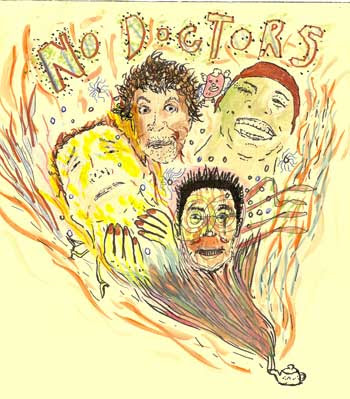 The beauty of remoteness. I bask in the silence of mountain life as I walk down from the top of Kyangin Ri. High in the Sky where only the birds fly. The go-betweens from the land to the hills, to the mountains to the air. Passing lines of ancient mani stones; rock carved prayers adjacent to wheels of water prayers. Crossing glacier streams, and then re crossing them. Following lines of porters, as they jog down steep mountain paths with their own woven baskets of mountains balanced on their sweat singed brows. The stony hills give way to grassy meadows, overseen by herds of domestic yaks and naks.
The beauty of remoteness. I bask in the silence of mountain life as I walk down from the top of Kyangin Ri. High in the Sky where only the birds fly. The go-betweens from the land to the hills, to the mountains to the air. Passing lines of ancient mani stones; rock carved prayers adjacent to wheels of water prayers. Crossing glacier streams, and then re crossing them. Following lines of porters, as they jog down steep mountain paths with their own woven baskets of mountains balanced on their sweat singed brows. The stony hills give way to grassy meadows, overseen by herds of domestic yaks and naks. We turn a corner and walk into an old man. He is wrinkled to the core, wrapped in a old army jacket and with a wollen hat pulled over his head. He stands in our path and points to his lips. His lips are swollen. They are bloodied. And filled with pus He has some sort of infection, but exactly what I am not sure. He is asking for medicines. We discuss a possible diagnosis: A fungus, a bacteria, a virus? We don't know. I search through my first aid kit as if looking for clues. I pull out boxes and packets and tubes - a range of different antibiotics, anointments and creams. But would a broad range spectrum antibiotic help? And if so how much should we give? Do we have enough? What if we need it ourselves in the next few days?
Remote beauty comes at a high price. Where even food does not grow and children leave for school for years at a time, mountain medicine is a privilege for only the rich. It is possible to charter a helicopter if the 'price' of life can afford to be paid. For others, perhaps they can leave for the 'services' of a city but that leaves them without the security of a family or a community. But for most mountain people, the lack of medical care is not a 'sacrifice' because access to orthodox treatment has never been a luxury they have experienced. The recent arrival of 'Health Posts' often means an increase in the responsibilities of the local midwife, as well as increasing frustrations as she does not have the medicines nor knowledge to fulfill the expectations placed upon her.
Meanwhile, for an old man with no English, and a humbleness beyond equality, his best choice is to catch a foreigner with the 'magic pills'.
We give him a couple of paracetamol and a handwritten sign in English to ask other tourists for the most likely antibiotics. Upon returning from the trek we look up a possible and distant diagnosis in a book entitled, “Where there are No Doctors”.
No comments:
Post a Comment